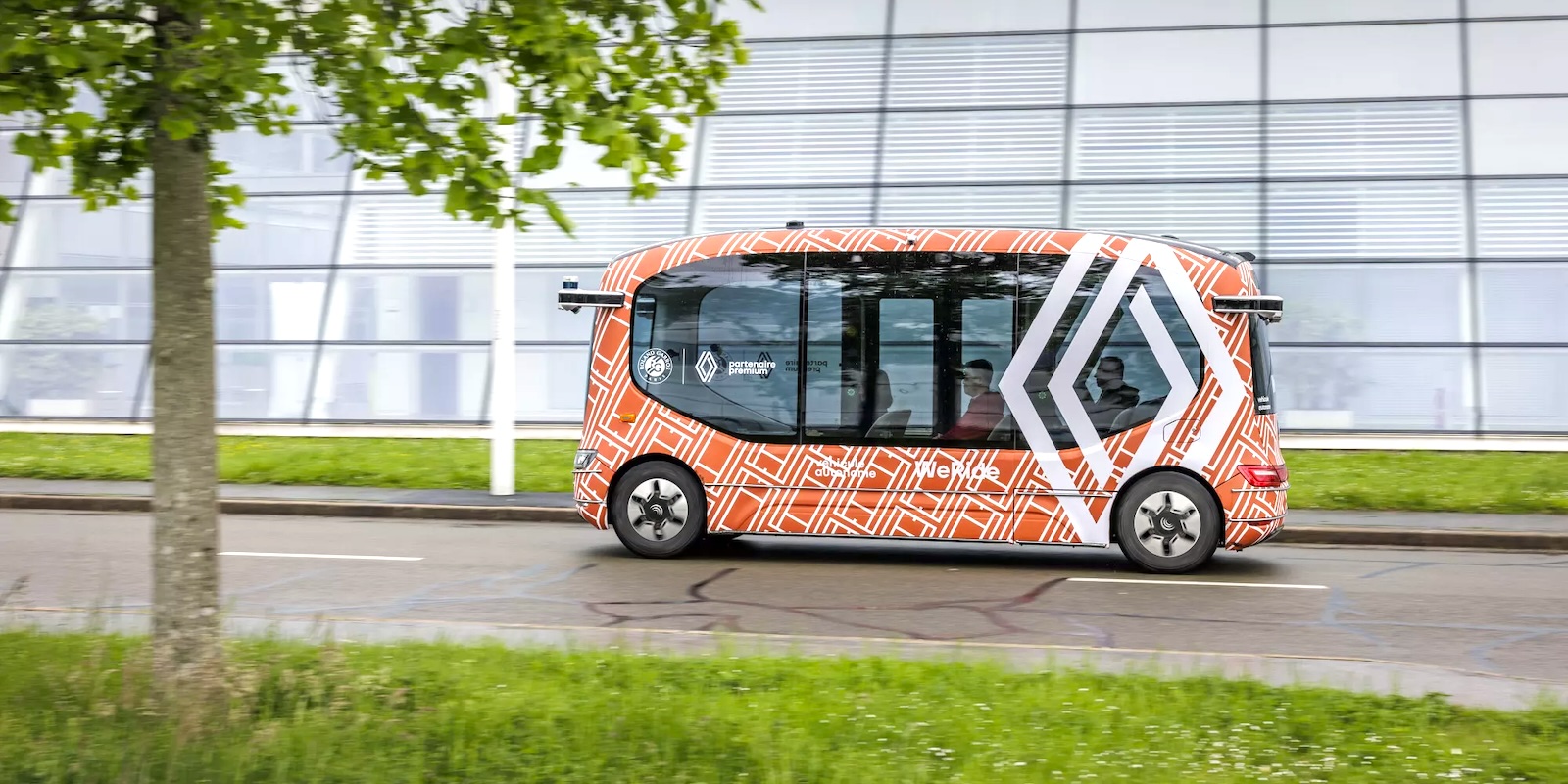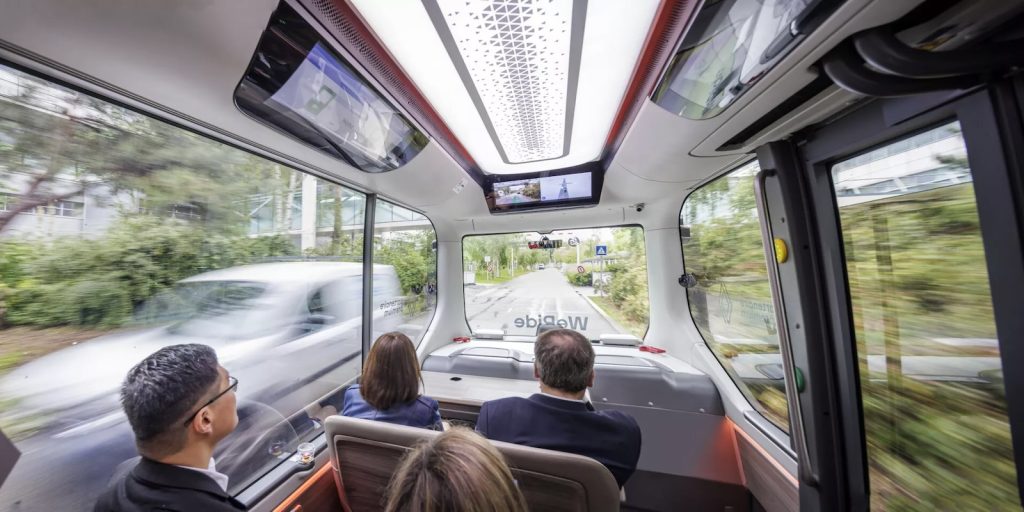
Renault doesn’t think fully autonomous vehicle have a place in the private vehicle market – but pulic transit? That’s a different story, and Renault is partnering with WeRide to put this Level 4 autonomous shuttle bus into production.
While some manufacturers are putting everything they’ve got into autonomous driving (for better or worse), French carmaker Renault is taking a different path. The company believes that, by separating expectations for individual vehicles from those of public transportation, they’ll be able to deliver on the promise of self-driving vehicles much sooner than later.
This latest project is being developed in conjunction with WeRide, a company that launched in 2017 with the stated goal of managing the large-scale commercial deployment of vehicles with an L4 level of autonomy. Together, WeRide and Renault have been testing its autonomous shuttle concepts for years in an effort to meet the needs of local authorities in European “low emission” zones.
“Renault Group is moving forward to implement its autonomous vehicle strategy,” says Gilles Le Borgne, CTO Renault Group. “As a result, thanks to our experiments and our partners, the best in their fields, we will be in a position, well before the end of this decade, to propose a highly relevant range of autonomous, low-carbon miniBuses to meet the growing needs of the regions.”
A fleet of these WeRide automated electric minibuses are slated to be integrated into the public transportation network of Chateauroux Metropole in France by 2026.
Electrek’s Take

In a bit of a surprise move, Renault is playing up the cost benefits of eliminating the operators’ jobs in its press release – specifically calling out those savings as a key benefit in the purchase of its automated shuttles. Lest you think that’s an exaggeration, I’ve quoted them:
More flexible, autonomous miniBuses will be able to operate 24/7 in complete safety and will be a zero-emission alternative or an efficient complement to existing solutions (train, tram, bus) in terms of costs and CO2/km.passenger. The additional costs of robotisation and automation could be offset by the absence of on-board operators. A simple remote supervision system will be required to operate a fleet of vehicles.
Why is this surprising, you ask? Well, the French have a habit of, you know – rioting in the streets and setting things on fire whenever they feel like their labor benefits are threatened. For a French company to actively market taking away those jobs?
That’s either brave or stupid.
FTC: We use income earning auto affiliate links. More.
